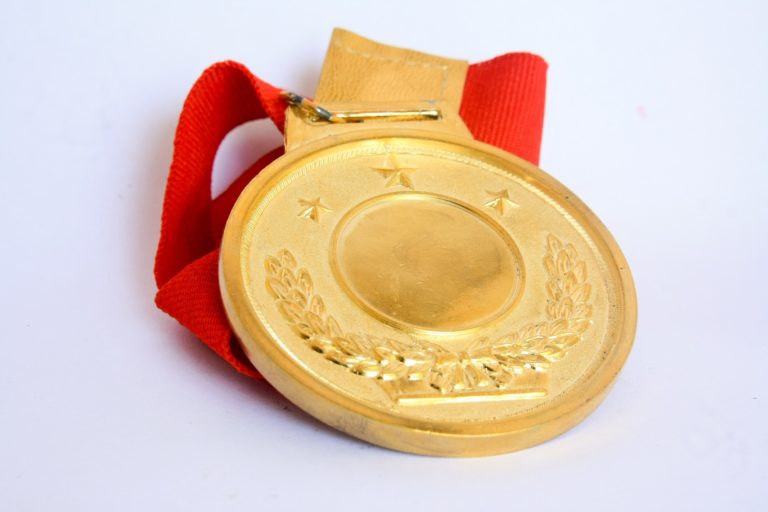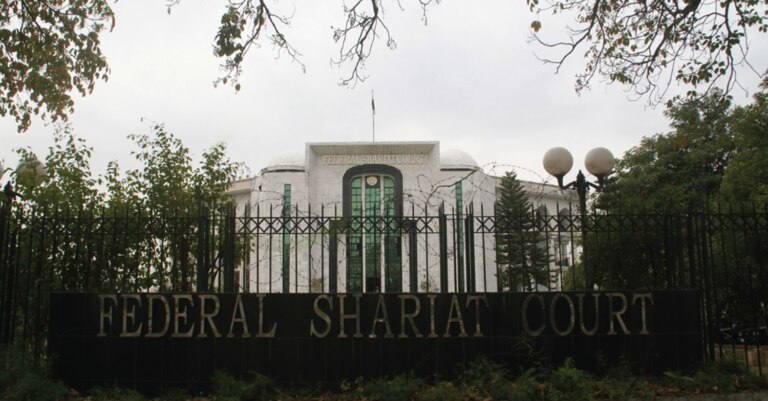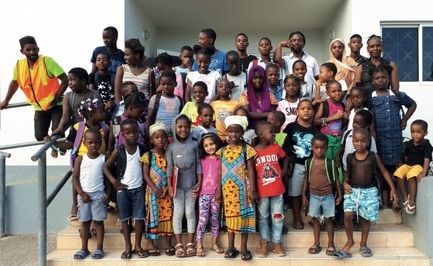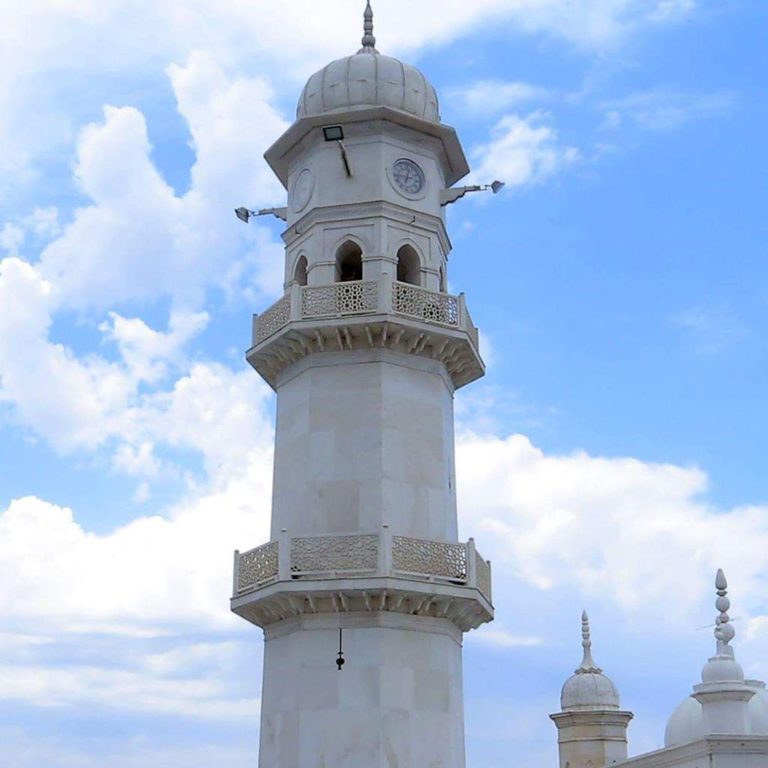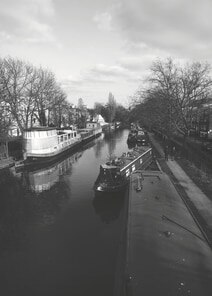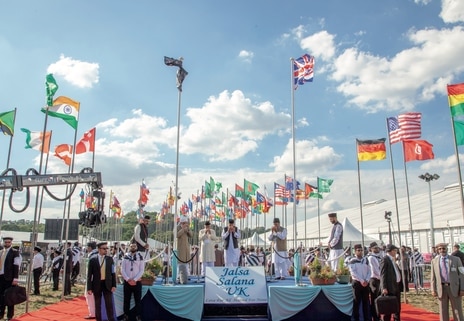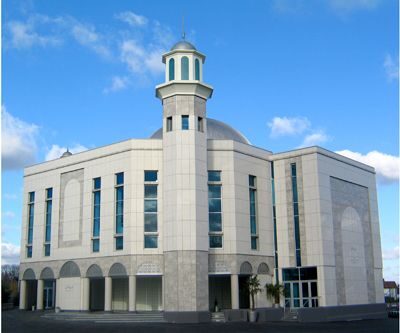Friday Sermon
13 July 2018
Men of Excellence
After reciting the Tashahud, Ta‘awuz, and Surah Al-Fatihah, Hazrat Khalifatul Masih Vaa stated:
Today, I will speak about two further companions of the Holy Prophetsa. [The first is] Hazrat Abu Usaid Maalik bin Rabia Saidi. Hazrat Maalik bin Rabia is better known as Abu Usaid. Some have said his name was Bilal bin Rabia. He belonged to the Banu Sa‘da branch of the Khazraj tribe. (Usdul Ghaba, Vol. 5, p. 13, Abu Usaid Al-Asa’idira, Printed in Darul Fikr, Beirut 2003)(Al-Isabatu Fi Tamyiz Al-Sahaba, Vol. 5, p. 535, Printed in Darul Kutub Al-Ilmiyya, Beirut)
Hazrat Abu Usaid Maalik bin Rabia was of a short stature. His hair and his beard had turned grey, but had a full set of hair. In his old age he lost his eyesight and died in 60 Hijri, during the time of Muawiyah at the age of 75. He was the last person among the Ansar to pass away who had participated in the Battle of Badr. (Al-Isabatu fi Tamyiz Al-Sahabah, Vol. 5, p. 536, Printed in Darul Kutub Al’Ilmiyyah, Beirut) (Usdul Ghabah, Vol. 5, p. 22, Maalik bin Rabiara, Printed in Darul Fikr, Beirut 2003)
Hazrat Abu Usaid accompanied the Holy Prophetsa in the Battles of Badr; Uhud; Khandaq [The Battle of the Trench] and later battles. He carried the standard of Banu Sa‘da at the time of the conquest of Mecca. (Al-Tabaqat Al-Kubra, Vol. 3, p. 286, Abu Usaid Al-Sa‘idi, Dar Ihyaa Al-Turath Al-Arabi, Beirut, 1996)
According to Hazrat Sahl bin Sa‘d, Hazrat Abu Usaid invited the Holy Prophetsa to attend his wedding. On the day of the wedding, his wife-to-be was serving in the house of the Holy Prophetsa and was later to become bride for that wedding. It was a simple occasion and the bride was cooking and serving the guests herself. Hazrat Sahl says: “Do you know what he offered the Holy Prophetsa to drink?” (It was his style to ask the question and then answer it himself.) She put some dates in water in a cup the night before and offered this juice to the Holy Prophetsa when he finished eating. (Sahih Muslim, Kitabul Ashribah, Chapter “Ibahatul Nabidh alladhi lam yashtaddu wa lam yasir muskiran”)
Once some prisoners were brought to the Holy Prophetsa. He found a woman among them who was crying. The Holy Prophetsa asked her why she was crying. She said that [her captor] had taken her son and sold him to the Banu Ubbais. The Holy Prophetsa summoned her captor and discovered that it was Hazrat Abu Usaid Sa‘di. When the Holy Prophetsa asked him if had separated the mother from her son, he said the child was unable to walk and the woman could not carry him, that was why he had sold him to Banu Abbas. The Holy Prophetsa ordered him to bring back the child. Thus, Abu Usaid himself brought the child back and returned him to his mother. (Sharful Mustafa, Vol. 4, p. 400, Jamia Abwab Sifat Akhlaqihi wa Aadaabihi, Hadith 1649, Printed in Darul Bashair Al-Islamiyyah Mecca, 2003)
The Holy Prophetsa said that a mother, no matter if she is a free woman or a slave, cannot be separated from her child even if she is incapable [of looking after him]. The Holy Prophetsa once held a camel and horse race. His own camel, which was ridden by Hazrat Bilalra won the race. Similarly, during a horse race, the Holy Prophet’s horse, which was ridden by Abu Usaid Sa‘idi left all others behind. (Imta‘ul Asma‘, Vol. 1, p. 212, Himayat Al-Naqi‘ li Khail Al-Muslimeen, Darul Kutub Al-‘Ilmiyyah, Beirut, 1999)
Hazrat Sahl says that Abu Usaid brought his new born son – Munzir bin Usaid – to the Holy Prophetsa who sat the baby down on his thigh. Abu Usaid also sat down in the gathering. A short while later, the Holy Prophetsa became occupied in something else and left. (He did not leave, in fact he became preoccupied with other work whilst seated in the same gathering). People picked up the baby from him. When the Holy Prophetsa had finished his work, he enquired as to the whereabouts of the baby. Hazrat Abu Usaid said that they had sent him away. The Holy Prophetsa asked what he had named the baby. Hazrat Usaid told him such and such name, the Holy Prophetsa said, “No, he is to be given the name Munzir”. Thus, the Holy Prophetsa named him Munzir. (Sahih Bukhari, Kitabul Adab, Chapter “Tahweel Al-Ism ila Ism Ahsan minhu”, Hadith 6191)
Commentators of the Ahadith have said that Abu Usaid had a cousin by the name of Munzir bin Amr who was martyred in Bi‘r-e-Ma‘unah. The reason for naming the baby Munzir was in the hope that he may prove to be a good successor for his namesake. (Fathul Bari Sharh Sahih Al-Bukhari, Kitabul Maghazi, Vol. 7, p. 497, Hadith 4094, Old Print from Kutub Khana Aram Bagh, Karachi)
Hazrat Sulaiman bin Yassar narrates that prior to the martyrdom of Hazrat Uthman, Hazrat Abu Usaid Sa‘di lost his vision and his eyes were permanently damaged. Hence, upon this he used to say “I thank Allah for granting me the faculty of sight during the lifetime of the Holy Prophetsa and for enabling me to witness all of these blessings. Furthermore, when Allah the Exalted desired to put people through trials, he took my sight from me and I lost my vision so that I will not have to witness these terrible circumstances.” (Al-Mustadrak ‘ala Al-Sahihain, Vol. 3, p. 591, Book “Ma‘rifat Al-Sahabah”, Hadith 6198, Printed in Darul Kutub Al-Ilmiyyah, Bierut, 2002)
Hazrat Uthman bin Ubaidillah, who was the freed slave of Hazrat Sa‘d bin Abi Waqas, narrates “I have seen Hazrat Ibn Umar, Hazrat Abu Huraira, Hazrat Abu Qatada and Hazrat Abu Usaid Sa‘di. These people would pass by us while we were in school [receiving education] and we could smell the fragrance of Abeer emanate from them.” This fragrance is created from a mixture of saffron and various other things. (Author Ibn Abi Shaibah, Vol. 6, p. 216, Kitabul Adab, Chapter “Ma yustahabbu lirrijaal an yujada rihuhu minhu”, Dar Al-Tafkir, Beirut)
Marwan bin Al-Hakam used to appoint Hazrat Abu Usaid Sa‘di for the collection and distribution of charity. When Hazrat Abu Usaid Sa‘di would come to his door, he would make his camel sit down and give him everything for the distribution. The last item he would give was the whip and whilst doing so, he would say that this is from your share. Once, Hazrat Abu Usaid came in order to distribute the Zakat [alms]. He left after having distributed everything. He went home, fell asleep and saw in a dream that a snake had wrapped itself around his neck. He woke up perturbed by the dream and asked a female servant or his wife if there was anything left behind from the sum that he was given in order to distribute? She said no. Hazrat Abu Usaid replied that why then did the snake wrap itself around my neck? Go and take a look. Perhaps something is left behind. When she went to take a look, she said that indeed, there is a rope to tie the camel with, which was also used to tie a small bag [for distribution]. Hence, Hazrat Abu Usaid went and returned this rope as well. (Sha‘bul Iman lil Bayhaqi, Vol. 5, p. 167, Hadith 3247, Maktabatul Rushd, Nashirun Riyadh, 2003)
Allah the Exalted desired to enable these companions to tread on the subtlest paths of righteousness and uphold and fulfil the highest standards of returning the trusts that they were entrusted with. This is the reason they received guidance even in their dreams.
Ammarah bin Radhiya narrates this statement of his father that some youths asked Hazrat Abu Usaid about the excellences the Holy Prophetsa had mentioned about the Ansar [Muslims native to Medina]. Upon this, he said that he heard the Holy Prophetsa say that from among the tribes of the Ansar, the best households were those of Banu Najjar, then Banu Abdul Ash‘al, then Banu Harith bin Khazraj and then Banu Sa‘da. Furthermore, every household of the Ansar is filled with virtue. Upon this, Hazrat Abu Usaid used to say that if he was to accept anything but the truth, he would have started with a household from among the Banu Sa‘da. (Al-Mustadrak ‘ala Al-Sahihain, Vol. 3, p. 592, Kitab Ma‘rifat Al-Sahabah, Hadith 6194, Printed in Darul Kutub Al-Ilmiyyah, Bierut, 2002)
With reference to an incident in history, Hazrat Musleh Maudra has stated on one occasion that when Arabia was conquered and Islam began to spread, there was a lady from the tribe of Qinda, who whose name was Asma or Umaima, who was also called Junia or Bint-ul-Jaun. Her brother, Luqman, came to the Holy Prophetsa as a representative of his tribe. On that occasion he also expressed his desire for his sister’s hand to be given in marriage to the Holy Prophetsa. He made the request directly to the Holy Prophetsa saying “My sister, who was previously married to a relative, is now widowed. She is very beautiful and intelligent. Please accept her proposal of marriage.” As the Holy Prophetsa desired to unite the tribes of Arabia, he accepted this request of his and said that the nikah [marriage ceremony] should be announced on the basis of twelve and a half ounces of silver [as her dowry]. He said “O Prophet of Allahsa! We are counted amongst the honourable families and chiefs of my people. This dowry is too low.” The Holy Prophetsa replied “I have not set a higher dowry for any of my wives, nor any of my daughters.” Once he expressed his satisfaction, the nikah [marriage ceremony] was announced. Furthermore, he requested the Holy Prophetsa to send a person in order to pick her up. The Holy Prophetsa appointed Abu Usaid for this task. He went there. Jauniya invited him to her home upon which Hazrat Usaid said that the wives of the Holy Prophetsa have been instructed to observe the veil. Upon this, she inquired about further guidance, which he imparted to her. He brought her to Medina on a camel and settled her in a house, which was surrounded by date palms. The relatives of this lady sent her wet-nurse along with her.
Hazrat Musleh Maudra writes “In our countries, affluent and people of a higher status used to send female maids along with them. This is no longer the custom nowadays. However, it used to be like this in the older days so that she [the bride] would not feel any form of discomfort or problem. As this lady, who was married to the Holy Prophetsa, or whose brother proposed and desired for her to get married and was eventually married [to the Holy Prophetsa], was known for her beauty and as is customary that the women of the local area wish to meet a new bride in the area, the women of Medina also went to see her. This lady was known for her beauty and according to her own testimony, another lady had taught her to impose her authority and dignity from the very first day. She was told that when the Holy Prophetsa approaches, she should say ‘I seek Allah’s protection from you.’ In this manner, he will become more fond of you.”
Hazrat Musleh Maudra writes that if this was not a fabrication of this lady, it is very possible that a hypocrite schemed this mischief through his wife or another relative. Nevertheless, when the Holy Prophetsa received the news of her arrival, he went to the house which was designated for her. In the Ahadith [sayings of the Holy Prophetsa] it is written that when the Holy Prophetsa approached her he said to her, “Offer yourself to me [in marriage].’ Upon this she replied, “Does a queen offer herself to ordinary men?” Abu Usaid says that as the Holy Prophetsa thought that she was nervous due to not being familiar with him, he placed his hand on her in order to comfort her. As soon as he placed his hand on her, she uttered these utmost abhorrent and irrational words that “I seek Allah’s protection from you.”
Hazrat Musleh Maudra states “As a prophet becomes humbled when he hears the name of God the Exalted and is awestruck by His magnificence, the Holy Prophetsa immediately said upon hearing her words ‘You have sought refuge and protection of the Highest Being, Who grants protection in great abundance. Therefore, I accept your request.’ Hence, the Holy Prophetsa immediately came out of the house and said ‘O Abu Usaid! Give her two pieces of cloth and send her to her family.’ Hence, following that, apart from her dowry, the Holy Prophetsa instructed to give her two sheets as a gesture of kindness. In accordance with the commandment of the Holy Quran of [Arabic] (Surah Al-Baqarah: V. 238) ‘Do not forget to do good to one another,’ the Holy Prophetsa gave more and expressed his kindness.”
Hazrat Musleh Maudra then says: “This [verse] is in relation to women, who are divorced without having consummated the marriage. The Holy Prophetsa sent her away and Abu Usaid brought her to her home. This matter was very burdensome for the people of her tribe and they scolded her. However, she continued to reply that it was her ill fortune. At times, she even said that she was deceived and told that when the Holy Prophetsa approached her, she should step aside and express a sense of dislike. In this manner she would impose her rank and dignity on him. Whether this was the reason or something else, she expressed a sense of dislike and the Holy Prophetsa separated himself from her and sent her away.” (Tafsir-e-Kabir, Vol. 2, P533-535, Tafsir Surah Al-Baqarah, V. 228)
This entire incident is sufficient as a reply to the allegations that are raised against the Holy Prophetsa in relation to his wives and that, God forbid, he was keen of beautiful women. Hazrat Abu Usaid used to say that whenever something was requested from the Holy Prophetsa, he never rejected or declined. (Majma‘ Al-Zaw‘id, Vol. 8, p. 409, Kitab Alamat Al-Nubuwwah, Chapter “Fi Judihi”, Hadith 14179, Darul Kutub Al-Ilmiyyah, Bierut, 2001)
The other companion is Hazrat Abdullah bin Abdil Asad. His name was Abdullah and known as Abu Salamah. His mother was Barrah bint Abdil Muttalib. He was the cousin of the Holy Prophetsa and the foster-brother of the Holy Prophetsa and also Hazrat Hamzara. He had been suckled by Sobiah, the servant of Abu Lahab. He first married Umme Salamah. (Usdul Ghabah, Vol. 3, p. 295, Abdullah bin Abdil Asad, Darul Kutub Al-Ilmiyyah, Bierut, Lebanon)
With reference to this Hazrat Mirza Bashir Ahmadra also writes in Seerat Khatamun Nabiyyin that Abu Salamah bin Abdil Asad was the foster-brother of the Holy Prophetsa and belonged to Banu Makhzoom. After his demise, his wife Umme Salamah married the Holy Prophetsa. (Seerat Khatamun Nabiyyin byMirza Bashir Ahmad Sahib M.A., p. 124)
Hazrat Abdullah bin Abdil Asad was among the first people to accept Islam. According to Ibn Ishaaq, after the first ten people, he accepted Islam, so he was among the first Muslims. (Al-Isti‘ab fi Ma‘rifat Al-Sahabah, Vol. 3, p. 71, Abdullah bin Abi Abdil Asad, Darul Kutub Al-Ilmiyyah, Bierut, 2002)
In one narration Hazrat Abu Ubaidah bin Harith, Hazrat Abu Salamah, Hazrat Arqam bin Abu Arqam and Hazrat Uthman bin Maz‘un went to the Holy Prophetsa. He preached to them the message of Islam and recited the Holy Quran to them after which they accepted Islam and bore witness that the Holy Prophetsa is rightly guided. Hazrat Abdullah bin Abdil Asad and his wife Umme Salamah were among those in the first migration to Abyssinia. After returning from Abyssinia to Mecca they migrated to Medina. (Usdul Ghabah fi Ma‘rifat Al-Sahabah, Vol. 5, p. 153, Abu Salamah, Maktabah Darul Fikr, Beirut, Lebanon, 2003)
Their migration to Abyssinia is mentioned in Seerat Khatamun Nabiyyin: “When the suffering of the Muslims had reached its limit and the Quraish continued to aggravate the affliction of the Muslims, the Holy Prophetsa instructed Muslims to migrate to Abyssinia, and said, ‘The king of Abyssinia is just and equitable. None are subjected to oppression under his rule.’
“The country of Habshah, which is known as Ethiopia or Abyssinia in the English language, is situated to the north-east in the continent of Africa. It is exactly opposite to southern-Arabia and with the exception of the Red Sea, no country intercedes it. During that era, a strong Christian sovereignty was established in Abyssinia and the king was referred to as the Negus. As a matter of fact, the ruler there is still called upon by the same name. Arabia had business relations with Abyssinia, and in the era that we are currently mentioning, the capital of Abyssinia was Axsum, which is located near the present-day city of Adowa, and until now is considered a sacred city. In those days, Axsum was the centre of a very powerful sovereignty. During that time, the personal name of the Negus was Ashamah, who was a just, intelligent and powerful king. In any case, when the pains of the Muslims reached their limits, the Holy Prophetsa instructed that those who could afford should migrate to Abyssinia.
“Therefore, upon the instruction of the Holy Prophetsa, in the month of Rajab,5 Nabawi, eleven men and four women migrated to Abyssinia. The well-known names among them were as follows: Hazrat Uthman bin Affanra and his wife Ruqayyahra, daughter of the Holy Prophetsa, Abdur-Rahman bin Aufra, Zubair bin Al-Awwamra, Abu Hudhaifah bin Utbahra, Uthman bin Maz‘unra, Mus‘ab bin Umairra, Abu Salamah bin Abdul-Asadra and his wife Umme Salamahra. It is very strange that a majority of these pioneer immigrants were those who belonged to powerful tribes of the Quraish, and the weaker were few and far between. This illustrates two things: firstly, even those who belonged to the powerful tribes of the Quriash were not safe from the cruelties of the Quraish. Secondly, weak people such as slaves, etc., at that time, were in such a grave state of weakness and misery that they were not even able to migrate. Travelling south, when the immigrants reached Sha‘ibah, which was a sea-port in Arabia at that time, by the Grace of Allah they found a trade ship which was just ready to leave for Abyssinia and thus, all of them boarded in security. When the Quraish were informed of this, they were deeply enraged that this ‘prey’ had slipped their hands. Hence, they pursued these immigrants, but when their men reached the coast, the ship had already departed, and for this reason they returned disappointed. Upon reaching Abyssinia the Muslims found a life of great peace and protection from the cruelties of the Quraish after much difficulty and prayers.” (Seerat Khatamun Nabiyyin, by Hazrat Mirza Bashir Ahmad Sahib M.A., p. 146-147)
Ibn Ishaaq states that when Abu Salamah returned from Abyssinia and sought the protection of Hazrat Abu Talib, few people of Banu Makhzoom visited Abu Talib and enquired, “You have given protection to your nephew Muhammad, but why have you given protection to our brother Abu Salamah?” Abu Talib replied, “He sought my protection and he also is my nephew (sister’s son). If I had not given protection to my nephew (the Holy Prophet) then I would not have given protection to my other nephew.” Abu Lahab addressed the people from Banu Makhzum and said, “You constantly irritate Abu Talib; a noble man amongst us, and talk in vain. By God, refrain from this or else we are with him in every matter till he fulfils what he desires.” Upon hearing this, the people addressing Abu Lahab said, “O Abu Utbah we refrain from that which you dislike.” As Abu Lahab was a friend and supporter of Banu Makhzum in the opposition of the Holy Prophetsa, they refrained from insisting or urging regarding Abu Salamah. Upon hearing the words of accord from Abu Lahab, “He is speaking in favour of me and has stopped the other party; therefore, he will agree to support us”, Abu Talib recited some stanzas in which he praised Abu Lahab and tried to persuade him to support the Holy Prophet. (Al-Seerat Al-Nabawiyyat li Ibn Hisham, pp. 269-270, Qissat Abi Salamah fi Jawarihi, Darul Kutub Al-‘Ilmiyyah, Beirut, Lebanon, 2001)
Nevertheless, this had no effect on him and he increased in opposition.
Ibn Ishaq says that Ummul Momineen [the mother of the believers], Hazrat Umme Salamahra relates that when her husband Hazrat Abu Salamahra decided to go to Medina, he prepared his camel. He mounted her and their son Salamah on it, who was in her lap and then they set off. A short distance forward, some people from Banu Makhzoom surrounded them and said that Umme Salamahra was their woman, thus they would not allow her to go with them journeying from town to town. Hazrat Umme Salamahra says that in the end they took her husband away from her. Upon hearing this news the people of Banu Abdil Asad became frightened and said that that man was of Abu Salamah and they would not leave him with them. Therefore, he took her son away (the tribe kept the woman and the son was taken away by the tribe of the father). She says that she was completely alone and remained in this wretched state for a whole year, that every day she would go to a place called Atbah and cry. One of her uncle’s sons saw her crying there one day and felt pity. He went to her tribe Banu Mugheerah asking them as to why they tormented that poor woman? He said that they had separated her from her husband and son. Thus, they should let her go. Thereafter they told her that she could go and see her husband. Hazrat Umme Salamahra says that after this, the Banu Abdil Asad tribe returned her son. She then prepared her camel and took her son with her. When she departed for Medina, she had no helper with her. When she reached a place named Tan‘eem, she met Hazrat Uthman bin Abi Talha (who had not yet accepted Islam at the time and did so later in 6AH). He said “O Umme Salamah, where are you headed?” She replied that she was going to her husband in Medina. Hazrat Uthman asked if there was someone accompanying her to which she said that by God, there was no one and only her son and God Almighty accompanied her. Hazrat Uthman then said “By God, I will not allow you to travel all by yourself like this. I will accompany you.” He then took hold of her camel’s bridle. Hazrat Umme Salamah relates, “By Allah I had never seen any Arab more honourable than this man. Upon reaching a destination, we sat the camel down and dismounted (in different areas they would camp up and leave the camel). Whenever I would dismount my camel, he would remove the saddle off its back, tie the camel to a tree and fall asleep under the shade of another tree. When it was time to continue the journey, he would prepare the camel once again and I would mount it whilst he would walk holding the nose-halter until we reached Medina. When Hazrat Uthman bin Talha saw the village of Banu Amr bin Auf in Qaba he said ‘O Umme Salamah, this is where your husband Abu Salamah is staying. Enter this house with the blessings of God Almighty upon you.’ Hazrat Uthman then returned to Mecca.” (Al-Seerat Al-Nabawiyyatu li ibni Hisham, p. 333, Dhikril Muhajireen ila Al-Medina, Darul Kutub Al-‘Ilmiyyah, Beirut, Lebanon, 2001)
In the second year after Hijra when the Holy Prophetsa left for the Battle of Ushairah, he appointed Abu Salamah as the governor in Medina. (Al-Isti’ab fi Ma‘rifat Al-Ashab, Vol. 3, p. 71, Abdullah bin Abdil Asad, Darul Kutub Al-Ilmiyyah, Beirut, Lebanon, 2002)
Hazrat Mirza Bashir Ahmadra writes regarding the Battle of Ushairah, “After this, in Jamadi I, upon receiving news of the Quraish of Mecca once again, the Holy Prophetsa set out from Medina with a company of the Companions and appointed his foster-brother, Abu Salamah bin ‘Abdil Asadra as the Amir in his absence. In this ghazwah [battle], after making numerous rounds, the Holy Prophetsa finally reached ‘Ushairah, which was situated close to the coast and the region of Yanbu‘. Although a battle with the Quraish did not take place, nevertheless the Holy Prophetsa settled a treaty with the Banu Mudlij on terms as were agreed upon with the Banu Damrah, and subsequently returned.” (Seerat Khatamun Nabiyyin by Hazrat Mirza Bashir Ahmad M.A., p. 329)
The following conditions were agreed upon with Banu Damrah that they would hold cordial relations with the Muslims and will not aid any opposition against the Muslims. Furthermore, when the Holy Prophetsa calls upon them to help the Muslims they would come forward immediately. On the other hand the Holy Prophetsa took an oath with the Muslims that they would have cordial relation with Banu Damrah and help them in the time of need. This pact was written down and both parties signed it. (Al-Seerat Al-Nabawiyyatu li ibni Hisham, pp. 269-270, Qissatu Abi Salamahra fi Jawarihi, Darul Kutub Al-‘Ilmiyyah, Beirut, Lebanon, 2001)
Then, in Seerat Khataman Nabiyyin it is written: “The defeat suffered in the battle of Uhud by the Muslims made the tribes of Arabia even bolder than before in raising their heads in opposition to the Muslims. As such, much time had not passed since the Battle of Uhud, and the Companions had not even become fully discharged from tending to their wounds, when in Muharram,4 AH, the Holy Prophetsa suddenly received news in Medina that Tulaihah bin Khuwailid, chief of the Asad tribe and his brother Salamah bin Khuwailid were inciting the people of their region to wage war against the Holy Prophetsa. As soon as this news was received, the Holy Prophetsa, who under the circumstances of his own region, understood the dangers of such news, immediately assembled a fast riding detachment of 150 Companions and appointed Abu Salamah bin Abdil Asadra as their Amir. The Holy Prophetsa emphatically instructed that they should march towards the enemy and cause them to disperse before Banu Asad were able to practically execute their hostile motives. As such, Abu Salamahra advanced swiftly but silently and caught the Banu Asad at a place called Qutn, situated in central Arabia, but no fighting took place. As a matter of fact, the people of Banu Asad dispersed as soon as they caught sight of the Muslims. After an absence of a few days, Abu Salamahra returned to Medina. Due to the strenuous labour of this journey, the injury sustained by Abu Salamahra at Uhud, which had apparently healed until then, began to deteriorate again. Despite medical treatment, the wound continued to worsen, and ultimately in this very illness, a faithful and pioneer Companion of the Holy Prophetsa, who was also the foster-brother of the Holy Prophetsa passed away.” (Seerat Khatamun Nabiyyin, by Mirza Bashir Ahmad Sahib M.A., p. 511)
His body was washed with the water of the well Al-Yaseerah, which was the property of Banu Ummayyiya Bin Zaid at the station of Aliya. During the days of ignorance, this well was named Al-Abeer and the Holy Prophetsa changed the name to Al-Yaseera. Hazrat Abu Salamahra was buried in Medina. (Al-Tabaqat Al-Kubra, Vol. 3, p. 128, Abu Usaid Al-Sa’idi, Dar Ihyaa Al-Turath Al-Arabi, Beirut, 1996)
When Hazrat Abu Salamahra passed away, the Holy Prophetsa closed his eyes and prayed after his demise, saying, “O Allah, treat Abu Salamah with forgiveness and elevate his status amongst the guided people; become the Guardian of the heirs he left behind. O Lord of all the worlds! Forgive him and us too.” In another narration it states that in the final moments of his life, Hazrat Abu Salamahra prayed, “O Allah! Find the most excellent person to replace me who shall look after my family.”
Thus, this prayer was accepted and the Holy Prophetsa married Umme Salamahra. (Usdul Ghabah fi Ma’rifat Al-Sahabah, Vol. 3, p. 296, Abdullah bin Abi Abdil Asad, Darul Kutub Al-‘Ilmiyyah, Beirut, Lebanon)
Hazrat Umme Salamah’s son narrates, “Hazrat Abu Salamahra went to Hazrat Salamahra and said that I heard the Holy Prophetsa mention a Hadith [tradition] which is even more dearer to me than such and such thing. The Holy Prophetsa said, ‘Whomsoever is faced with an affliction and prays, “Surely to Allah we belong and to Him shall we return” and then says, “O Allah! I seek reward from You in exchange of this affliction.” God Almighty shall then grant one its reward.’”
Hazrat Umme Salamahra states, “When Abu Salamahra was martyred, I prayed – even though my heart did not truly desire to say this prayer – ‘O Allah! grant me someone in place of Abu Salamahra.’ I then said to myself that who could be better than Abu Salamahra; he possessed such and such qualities. In other words, he had many qualities and attributes, but still I offered this supplication.” When Hazrat Umme Salamah’s iddat [a fixed time period appointed by the Islamic Sharia, which must elapse before a widow or divorced woman can marry again] was completed, she received a message from the Holy Prophetsa asking for her hand in marriage and the Holy Prophetsa then married her. (Al-Isabatu fi Tamyiz Al-Sahabah, Vol. 4, p. 132, Maktabah Darul Kutub Al-‘Ilmiyyah, Beirut, Lebanon, 2005)
With regards to this marriage, Sahibzada Mirza Bashir Ahmad Sahibra writes in Seerat Khataman Nabiyyin: “The very same year, in the month of Shawwal, the Holy Prophetsa married Umme Salamahra. Umme Salamahra belonged to a noble family of the Quraish and prior to this, was married to Abu Salamah bin Abdil Asadra, who was a very faithful and pioneer Companion and had passed away this year. When the iddat had passed, since Umme Salamah was a very wise, well-mannered and able lady, Hazrat Abu Bakrra desired to marry her, but she did not accept. Finally, the Holy Prophetsa thought to marry her, because in addition to her personal qualities, due to which she was worthy of becoming the wife of a law-giving Prophet, she was the widow of a very eminent and pioneer companion. Then she also had children, due to which it was necessary to make special arrangements for her. In addition to all this, Abu Salamah bin Abdullahra was also the foster brother of the Holy Prophetsa, and for this reason, the Holy Prophetsa was especially concerned for his bereaved family. In any case, the Holy Prophetsa sent a proposal of marriage to Umme Salamahra. At first, she was somewhat reluctant on account of various difficulties and excused herself saying, “I have grown old and am no longer able to bear children.” However, since the purpose of the Holy Prophetsa was different, she ultimately accepted. Her son acted as the guardian of his mother and married her to the Holy Prophetsa. As it has already been mentioned, Umme Salamahra was a lady of distinct stature and in addition to being extremely intelligent and sharp, she possessed a lofty rank in sincerity and faith. She was among those people who had migrated to Abyssinia on the instruction of the Holy Prophetsa in the early days. Even in migrating to Medina, she was the very first among the ladies. Hazrat Umme Salamahra knew how to read as well, and played a significant role in educating and training the Muslim women. Many narrations and Ahadithare related by her in the books of Hadith, and in this respect she stands second among the wives of the Holy Prophetsa, and twelfth among all the Companions in total (including both men and women). (Seerat Khatamun Nabiyyin, by Mirza Bashir Ahmad Sahib M.A., pp. 530-531)
Thus, this the description of the Companionsra. May God Almighty continue to further elevate their lofty status and also enable us to adopt their virtuous practices.
I shall now mention some details of a few people who have recently passed away and also offer their funeral prayers [in absentia].
The first is Raja Naseer Ahmad Nasir, who served as a life-devotee and a missionary of the Jamaat. He has also formerly served as Nazir Islaah-o-Irshaad Markaziyya. He passed away on 6 July 2018 at the age of 80 in the Tahir Heart Institute [Rabwah] – Surely to Allah we belong and to Him shall we return. He was suffering from illness for many years, and since 2012 his health was slowly deteriorating. For the last three months he was completely bedridden due to suffering from a brain haemorrhage.
He was born on 7 May 1938 in Bhera, in the district of Sargodha. He acquired his basic primary education from there and also completed his matriculation exams and then worked as an office clerk in the department for irrigation in Lahore. He devoted his life for the cause of faith in 1958 and entered Jamia Ahmadiyya and attained his Shahid Degree in 1965. Ahmadiyyat entered his family through his father, Raja Ghulam Haider Sahib, who did the Bai‘at at the hand of Hazrat Khalifatul Masih IIra and later got his parents and siblings to also take the Bai‘at. It was the desire of Raja Naseer Ahmad Sahib’s father that one of his sons should become a life-devotee and it was in order to fulfil this desire that Raja Naseer Ahmad Sahib completed the life-devotee form and took the form to his elder brother, Raja Nazeer Ahmad Zafar Sahib, to sign. His elder brother said that he should ponder very carefully over this as this was a very arduous and challenging task which demanded great responsibility. However, he said to his brother that he had given plenty of thought to it and requested him to sign – his father had passed away then. Thereafter, as I mentioned, he devoted his life and entered Jamia Ahmadiyya and after graduating from there, he then entered the practical field. After graduating from Jamia Ahmadiyya, he had the opportunity to serve the Community for 47 years. He served in various parts of Pakistan as a missionary and prior to the partition when Pakistan and Bangladesh were one, he served in East Pakistan – Bangladesh. He also served in Uganda, Zaire and Indonesia. He also served for two years as a teacher in Jamia Ahmadiyya and thereafter he served as a Naib Nazir in Sadr Anjuman Ahmadiyya and as Nazir Islaah-o-Irshaad Markaziyya for ten years. He also served for two years as Additional Nazir Rishta Nata and for two years as Additional Nazir Isha‘at. In 2012 he took his retirement. His wife, who was also his cousin, passed away during his lifetime. He had three sons; Raja Muhammad Ahmad Sahib, who lives here in London, Raja Ataul Manan, who is a missionary and currently serving in Wakalat-e-Tasneef Rabwah and Raja Muhammad Akbar who is also here in the UK.
He had great trust in God Almighty and was devoted to his prayers and supplications. His son writes that when they lived in Bangladesh, a fire once broke out and was almost approaching the homes of the Ahmadis. At the time he prayed, “O Allah! Your Messiah has stated, ‘[Threaten me not with fire,] for fire is my servant and indeed the servant of my servants’, thus save us from the fire.” He relates that the fire approached the houses and the flames were even touching the corner of one of the houses but it stopped there and did not spread any further and the houses of the Ahmadis were saved.
While serving in Uganda, the conditions became very dangerous due to the outbreak of a war, however he would still go out and do tabligh [preaching]. He would go early in the morning and return home in the evening as there was no place to stay, so he would only go to the nearby areas. One day, a member of Jamaat-e-Islami came to him believing him to be a Maulvi of a Tablighi Jamaat and said he had a car and he could buy it from him for 1400 dollars. Eventually, they negotiated and settled the deal for 1150 dollars. At the time, neither did the Jamaat have the funds to purchase a car, nor did Raja Sahib. However, he prayed to God Almighty to make the arrangements for the funds so that he could purchase the car and this would assist him in his tabligh as he could take a small grill and bedding and go out for tabligh. He was extremely worried as the deal was done and he had been given a few days in which he had to pay the amount. He says that one day he opened his mailbox and saw that he had received a letter from one of his brothers-in-law in Canada. In the letter he wrote that he saw in a dream last night that he was in need of 1150 dollars. He wrote that he did not know the reason why he needed this amount but nevertheless he was sending him money and with it was a cheque of 1150 dollars. There are many other accounts similar to this of his acceptance of prayers.
He had great passion for the recitation of the Holy Quran. His son writes that his father desired to complete the reading of the Quran in the air and on water. He had finished the Quran many times on land. Thus, he had the opportunity to complete the reading of the Holy Quran whilst travelling on sea. The travel by air was never long enough, but however much time he spent whilst travelling in the aeroplane, he would recite the Holy Quran.
His son, who is a life-devotee and is currently serving in Wakalat-e-Tasneef, Raja Ataul Manan, says that their father always advised them about two things; never to do shirk [associate partners with God] and to always remain attached to the institution of Khilafat-e-Ahmadiyyat in all circumstances. He himself also always adhered to these two principals.
He would show great respect to his mother. His sister writes: “He would show such obedience to our mother that if she would repeatedly ask him to carry out a certain task, he would listen to her each time as if this was the first time she had requested. He would never say ‘You have already asked me this before.’” His daughter-in-law, who is also the wife of a missionary, writes: “In these eighteen years, I have only ever felt love and honour from my mother and father (i.e. referring to her mother-in-law and father-in-law). Raja Sahib would say to my late mother that he would ensure that her daughter forgets the memories of her parents’ house. My mother would say that girls can never forget the house of their parents. But he would say that if the in-laws treat the daughter-in-law like their own, they can easily forget their parents’ home.” Nonetheless, he always maintained a bond of love and respect with his daughters-in-law. She continues by saying: “My father-in-law had the utmost love and obedience for God Almighty, the Holy Prophetsa, the Promised Messiahas, Khulafa, the Holy Quran and Khilafat. He had a good understanding of different matters and would impart valuable advice, whilst at the same time he would always show kindness.” She further writes: “Another one of his attributes was that he would finish a complete reading of the Holy Quran every month.” His relatives have also written that they are a witness to how God Almighty fulfilled all of his needs and would accept his prayers.
Nonetheless, he was a successful missionary and had administrative abilities as well. His relationship with Khilafat was exemplary and it can be said for him that he worked alongside Khilafat in the same manner that a pulse works in accord with one’s heart. In Pakistan when Hazrat Khalifatul Masih IVrh appointed me as Nazir-e-Ala [Executive Director of Sadr Anjuman Ahmadiyya] I saw a distinct form of obedience in him that he would obey the office-bearer simply because he was appointed by Khalifatul Masih. His obedience was exemplary, the likes of which is seldom seen in the world today. May God Almighty shower His mercy on him and enable his children to continue his virtuous deeds. He possessed many qualities. He would always care for the poor and destitute. Furthermore, whichever missionary he would work alongside he would look after them and would care for their needs. Many of the missionaries that have written to me have mentioned this point.
Aside from this there is a funeral prayer of two martyrs, who although were not martyred for the sake of the Jamaat, however a robbery took place at their shop and the thieves shot them as a result of which they were martyred. One of them is Mubeen Ahmad Sahib, son of Mehboob Ahmad Sahib, and the other is Muhammad Zafrullah Sahib, son of Liaqat Ali Sahib. On 7 July 2018 at approximately 3pm, in the Korangi Industrial area of Karachi, armed robbers fired at three Khuddam; namely Mubeen Ahmad Sahib, son of Mehboob Ahmad Sahib, Zafrullah Sahib and Muhammad Nasrullah Sahib. As a result of this, Mubeen Ahmad Sahib and Zafrullah Sahib were killed. Surely, to Allah we belong and to Him shall we return. The armed robbers wanted to loot their electronics shop. Since they resisted, they opened fire and killed them.
Ahmadiyyat entered the family of Mubeen Ahmad Sahib, son of Mehboob Ahmad Sahib, through his great paternal grandfather, Mr Chaudhry Alladad Sahib. He performed the Bai‘at in 1940 through his elder brother Abdul Aziz Patvari Sahib. After performing the Bai‘at, his sons began to reproach him. They made a separate area in the house for him to stay and separated his bed and cutlery. However, he endured all of this with great patience. The deceased’s grandfather, Ali Muhammad Sahib was a staunch opponent of the Jamaat and a follower of Ataullah Shah Bukhari, who was a fierce opponent of Ahmadiyyat. During the partition when Ataullah Shah Bukhari used abusive language against Qaid-e-Azam [Muhammad Ali Jinnah], calling him Kafir-e-Azam [the great disbeliever] and also used profanities against the Muslim League, that was when his grandfather distanced himself from him. Subsequently, after the partition of India when the Jamaat [headquarters] was shifted [temporarily] to Lahore, he saw the fulfilment of the prophecy of the Promised Messiahas regarding migration. Consequently, he began to incline towards the Jamaat. After the partition he moved to Nawabshah with his family. When Hazrat Musleh Maudra visited Sindh [Pakistan], the deceased’s grandfather saw him at a railway station. When he saw the countenance of Hazrat Khalifatul Masih IIra, he said that it could not be the face of a liar, and subsequently performed the Bai‘at and entered into the Jamaat.
Mubeen Ahmad Sahib was studying for his BA and at the age of his martyrdom he was 20 years old. Mubeen Ahmad Sahib had many qualities; he was very tolerant, had a balanced temperament and a strong build. He regularly observed the five daily prayers and treated everyone in his home with love and respect. The deceased would fully partake in Jamaat activities and was an active Khadim. If he had to sacrifice his work for the sake of the Jamaat, he would do so without hesitation. The deceased had submitted his Wasiyyat and had been assigned a case number. His Wasiyyat will be accepted, God Willing. He had a good relation with all of his neighbours. Everyone has commented on this fact irrespective of whether they are old or young. Mubeen Ahmad Sahib was related to the second person martyred in this incident, Muhammad Zafrullah Sahib, through his aunt. Aside from his father, Mr Mehboob Ahmad Sahib and his mother Amatul Hafeez Begum Sahiba, he leaves behind two sisters, Mubeena Mehboob aged 23 years and Kinzah Mehboob aged 16 years, and one brother, Ameen Ahmad aged 13 years.
The second martyr whose funeral prayers will also be lead is Muhammad Zafrullah Sahib, son of Liaqat Ali Sahib. During this incident he was hit by three bullets which fatally injured both his kidneys. His operation was successful, however his health deteriorated again. The doctors decided to take him for another operation, however, he passed away last night. Surely, to Allah we belong and to Him shall we return. Ahmadiyyat also entered his family through his great paternal grandfather Ghulam Deen Sahib, who was from the district of Gurdaspur and worked on the land belonging to a companion of the Promised Messiahas, Hazrat Abdul Aziz Patvari. One day, he went with him to Qadian and after meeting with the Promised Messiahas, he performed the Bai‘at.
The deceased Muhammad Zafrullah Sahib was born on October 1993 in Karachi. He was a cheerful and well-mannered Khadim, who always had a smile on his face. The deceased would partake in Jamaat activities and was activly involved in various departments in Khuddamul Ahmadiyya. By the grace of Allah he was a musi [part of the Institution of Al-Wasiyyat] and was 25 years old when he was martyred. He is survived by his father, Liaqat Ali Sahib, his mother Naseera Begum Sahiba and five brothers; Wajahat Ahmad who is 33 years old, Mansoor Ahmad, 31 years old, Mustenser Ahmad, 28 years old, Shuja Ahmad, 27 years old and Hafiz Muhammad Nasrullah who is 24 years old. The third person injured in this incident was his brother Hafiz Nasrullah, who is currently in hospital having undergone surgery. May Allah grant him a swift recovery and restore him to full health. May he elevate the status of the deceased and grant steadfastness to their families.
(Translated by The Review of Religions)


